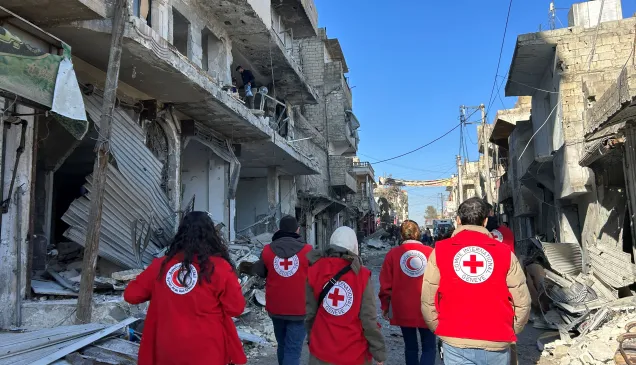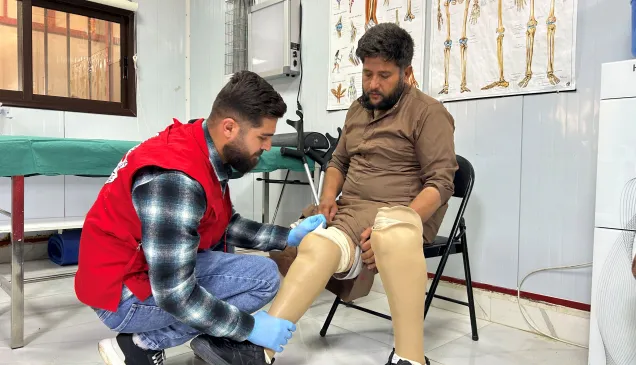Before the war, Abu Ammar transported fruits and vegetables in his vehicle. The bustling Eastern Ghouta was the main agricultural supplier to the markets in Damascus. Years of fighting choked the farming infrastructure in Eastern Ghouta.
Abu Ammar continues to work. Only difference - he transports rubble instead of vegetables.
Eastern Ghouta: Where the needs are immense and the recovery is slow
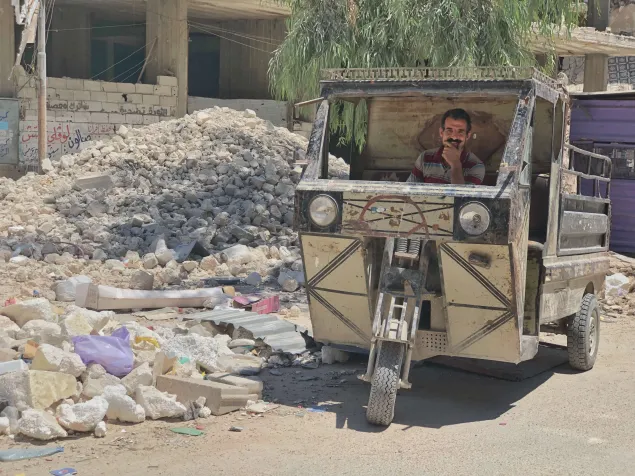
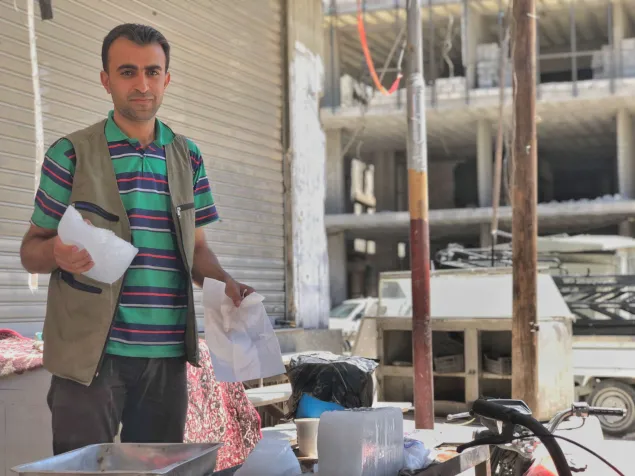
Abu Khaled used to run a stationery shop in Erbin - a town in Eastern Ghouta. He lost everything to the war.
With absolutely no electricity in Eastern Ghouta, summers can be a gruesome affair for the habitants. Looking for opportunities to make enough money to feed his three children, he found a solution that helps the people store food during the summer months. Khaled brings huge chunks of ice from Damascus every day and sells them in Eastern Ghouta.
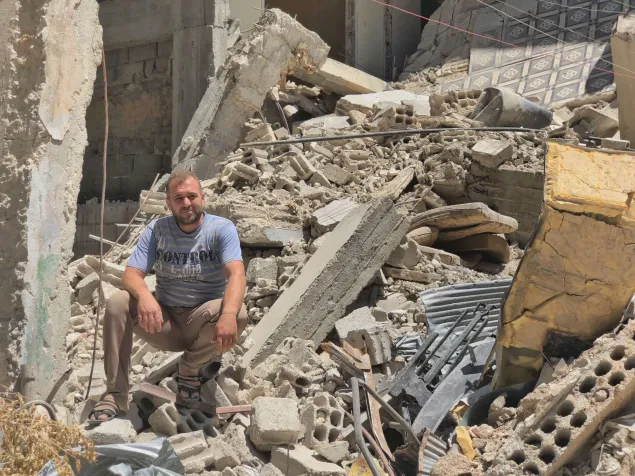
After losing his job as a plumber, Mehi-Eldeen was surrounded by nothing but the rubble of war. From the destruction that surrounded him, he found a new calling. He removes rubble from inside fallen buildings. One day, he hopes to restart his plumbing business.
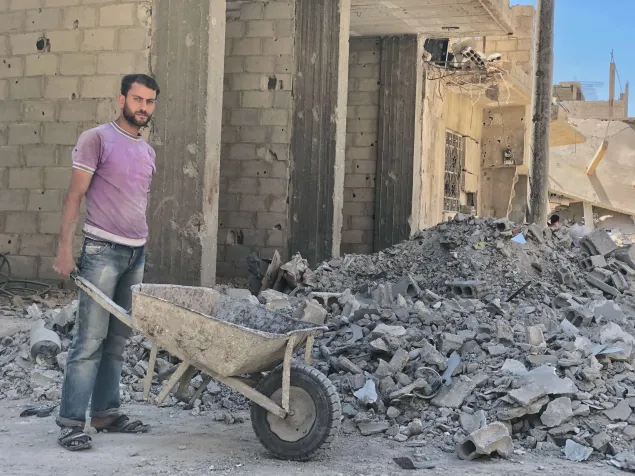
Motaz, a carpenter who spent his years building furniture before the war began, now spends his days collecting what the war has destroyed. According to Motaz, many people want to return to their homes in Eastern Ghouta. He clears the rubble from houses in a bid to make the places habitable again.. Maybe, someday, he will be back at his carpentry, entering the same apartments to deliver furniture.
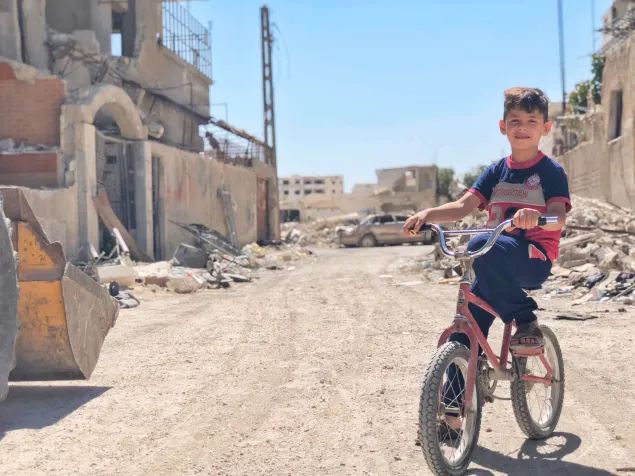
Abdullah is currently a resident of Zamalka. Like thousands of children in Eastern Ghouta, eight-year-old Abdullah has not attended school during his lifetime. This year, he is rejoicing that he will finally be able to attend school. He plans to work hard to achieve his dream of becoming a butcher like his father.
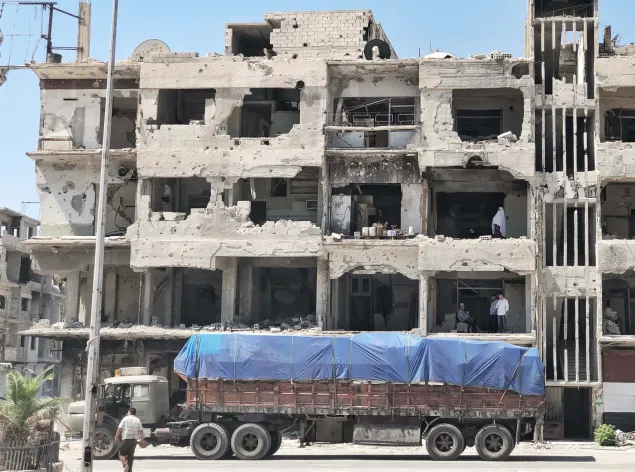
One can only imagine the pain and sorrow of the people standing in the rubble of their own homes.
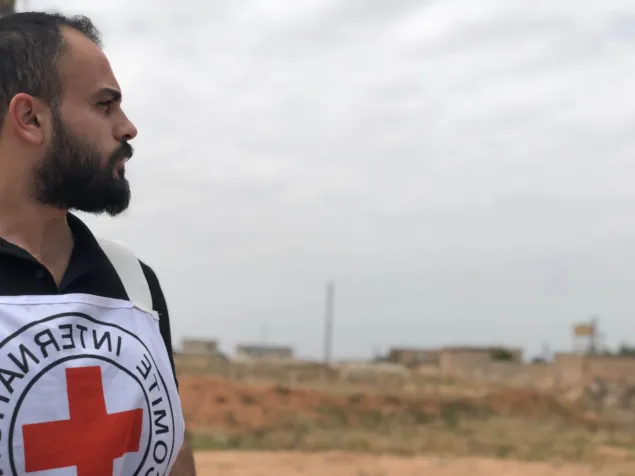
I saw a lot of destruction and listened to hundreds of people. Most of the time it was difficult to hear their stories without being able to help. Sometimes it felt better when our team could give hope where was none, but it’s always inspiring to learn from these people how to carry on.
I have been working with the International Committee of the Red Cross (ICRC) for the past three years. During these years, I have visited several cities across Syria. The one thing which inspires me the most, in all my travels, is meeting new people and interacting with them.
Last week, I visited people who are still living in the destruction of Eastern Ghouta. The current population of Eastern Ghouta is around 300,000 people. One thing they all share are the difficult conditions they struggle to live in.
The only source of safe drinking water comes via tanks provided by the ICRC. The tanks are refilled by other humanitarian organizations and us. The people I interacted with used to work as carpenters, plumbers and vegetable sellers. Today, the only work most of them can find is in transporting rubble.
By Ali Yousef, ICRC Syria

